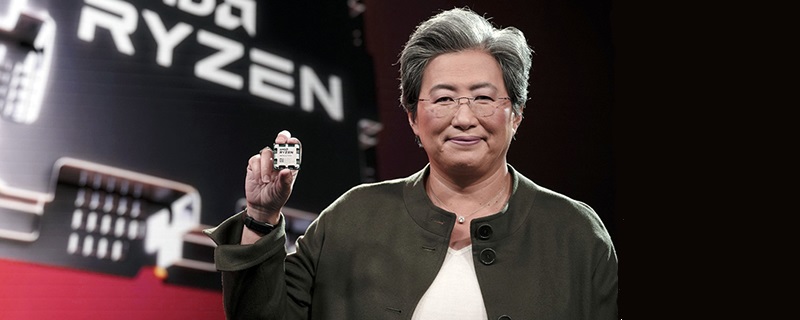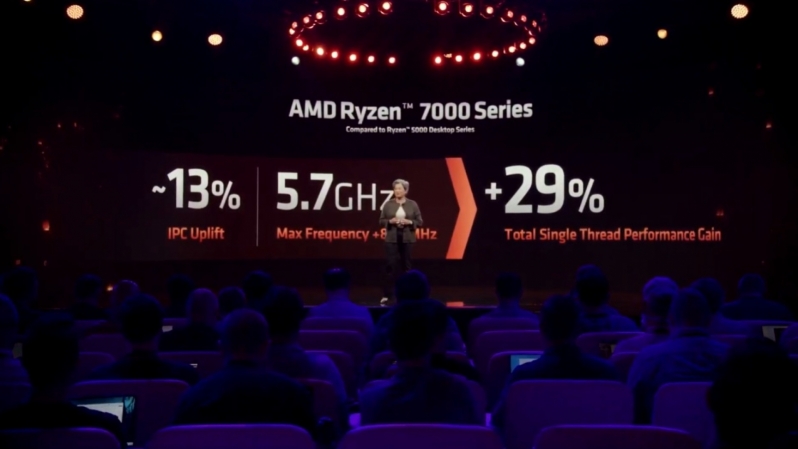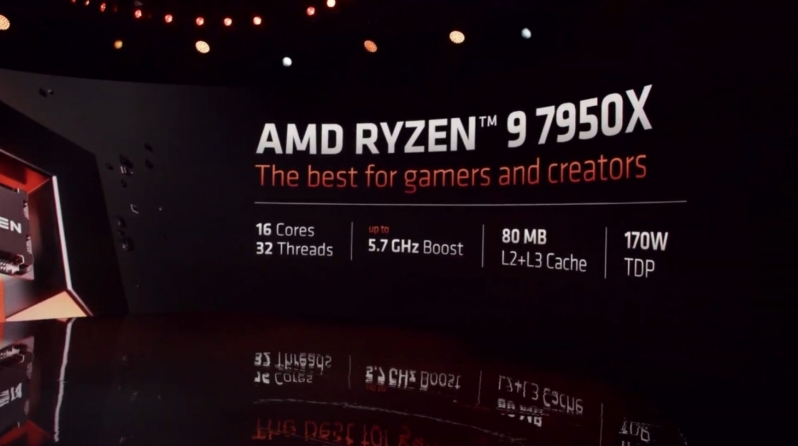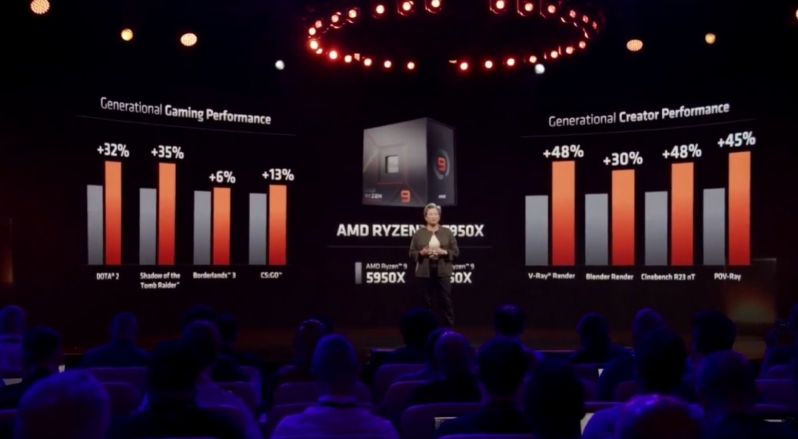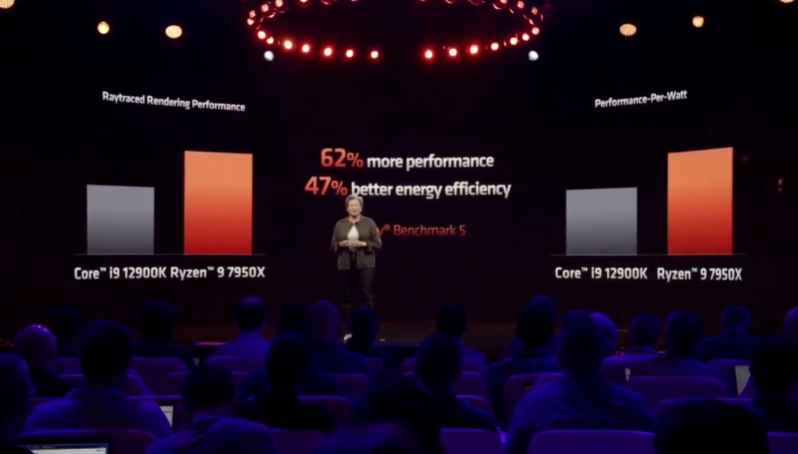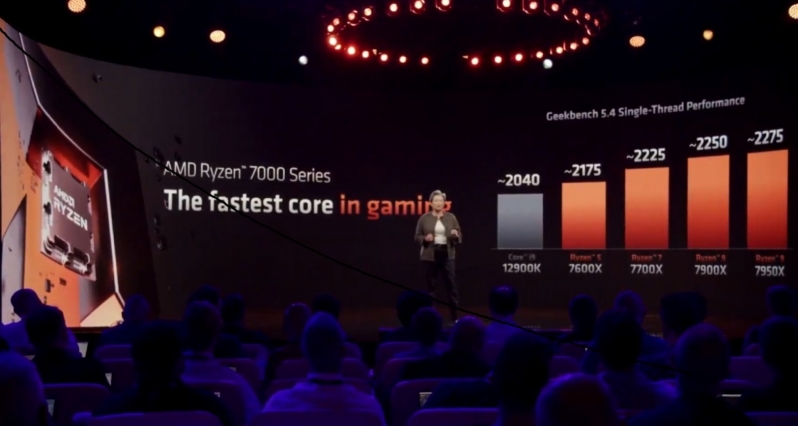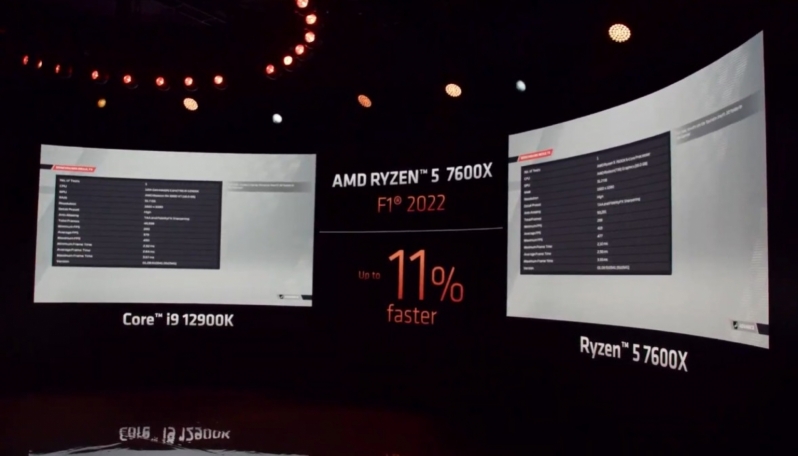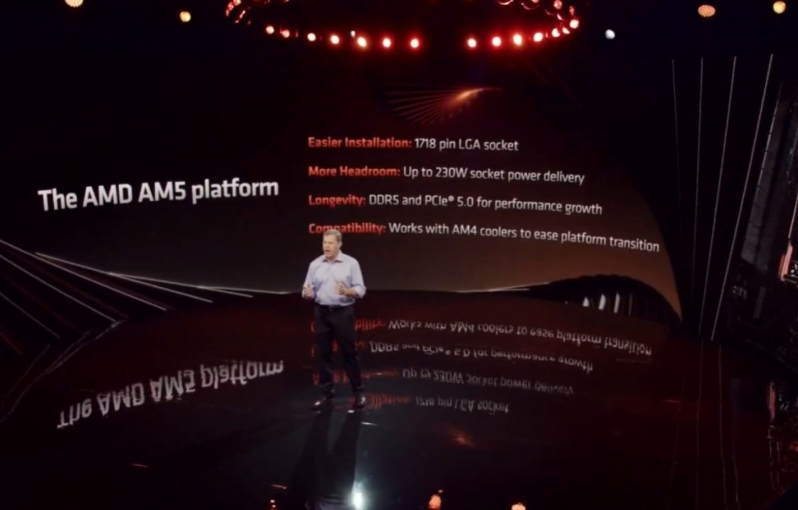What you need to know about AMD’s Ryzen 7000 series Zen 4 processors
Zen 4 is launching soon – Prepare for Ryzen 7000
It’s official, AMD is launching their Ryzen 7000 series processors on September 27th, ushering in a new era for AMD with a new motherboard platform, a new core architecture, and a new 5nm process technology. The days of AM4 are coming to a close, and AMD is ready to deliver truly next-generation products.
Ambitious design goals
Every new generation of AMD Ryzen processors has been significant, with every new core design delivering considerable performance gains and increased power efficiency. The move from Zen to Zen 2 and through to Zen 3 has transformed AMD, and with Zen 4 AMD plans to deliver some of their largest generational performance leaps to date.Â
With Zen 4, AMD wants to deliver gamers the fastest CPU cores and to deliver the highest levels of compute performance to creators. With their Ryzen 7000 series, AMD wants to deliver a “next-gen enthusiast desktop platform”, adopting next-generation memory and connectivity technologies to deliver further benefits.
What will Zen 4 deliver
With Zen 4, AMD has promised their users large clock speed improvements and a healthy IPC uplift. For the uninitiated, IPC means Instructions Per Cycle/Clock, which effectively is the amount of work that a processor can do per clock cycle. If two processors are running at the same clock speeds, let’s say 4GHz, the processor with the highest IPC would be faster.Â
With higher clock speeds and higher IPC (more performance per clock cycle) AMD has been able to deliver up to 29% increases in single-threaded performance for their Ryzen 7000 series processors.Â
One thing to note about IPC
When AMD says that their Ryzen 7000 series processors deliver 13% IPC gains, they don’t mean that users should expect 13% more performance per clock cycle in all workloads. AMD’s 13% IPC gains metric is an average that AMD has calculated using a variety of workloads. In some workloads, AMD’s Zen 4 CPU cores will deliver larger IPC gains, and in others Zen 4 will deliver smaller IPC gains. Even so, a 13% average isn’t bad.
AMD’s Ryzen 9 7950X, AMD’s new flagship
AMD is not increasing their core counts or thread counts with their Zen 4 generation processors. AMD’s Ryzen 9 7950X will be a 16-core 32-thread processor, just like AMD’s Zen 3 based Ryzen 9 5950X.
With their Ryzen 7000 series, AMD’s generational performance gains will come from increased CPU clock speeds and IPC increases, not higher core/thread counts. This is great news for users, because all applications can benefit from increased single-threaded performance. While some workloads love having additional cores to play with, not all applications benefit from higher core/thread counts. In this regard, having performance gains come from IPC and clock speeds is preferable to having new CPUs with higher core counts.
Pricing and Specifications
Below are the pricing and basic specifications of AMD’s new Ryzen 7000 series processors and their Zen 3 based Ryzen 5000 series counterparts. Below we can see that AMD has not increased their CPU prices generation-on-generation, and that all models offer users significantly higher base/boost clock speeds than their predecessors.Â
It is also worth noting that AMD has increased their TDP of most of their processors this generation, and that AMD’s new Zen 4 processors now feature two times as much L2 cache per core. It is also worth noting that none of AMD’s Ryzen 7000 series processors currently feature AMD’s V-Cache technology. Â
| CPU Model | Cores/Threads | Base/Boost Clock (GHz) | TDP | L2 + L3 Cache | MSRP (USD) |
| Â | Ryzen 7000 Series (Zen 4) | Launch MSRP | |||
| Ryzen 9 7950X | 16/32 | 4.5/5.7 | 170W | 16 + 64 MB | $699 |
| Ryzen 9 7900X | 12/24 | 4.7/5.6 | 170W | 12 + 64 MB | $549 |
| Ryzen 7 7700X | 8/16 | 4.5/5.4 | 105W | 8 + 32 MB | $399 |
| Ryzen 5 7600X | 6/12 | 4.7/5.3 | 105W | 6 + 32 MB | $299 |
| Â | Ryzen 5000 Series (Zen 3) | Launch MSRP | |||
| Ryzen 9 5950X | 16/32 | 3.4/4.9 | 105W | 8 + 64 MB | $799 |
| Ryzen 9 5900X | 12/24 | 3.7/4.8 | 105W | 6 + 64 MB | $549 |
| Ryzen 7 5800X3D | 8/16 | 3.4/4.5 | 105W | 4 + 96 MB | $449 |
| Ryzen 7 5800X | 8/16 | 3.8/4.7 | 105W | 4 + 32 MB | $449 |
| Ryzen 7 5700X | 8/16 | 3.4/4.6 | 65W | 4 + 32 MB | $299 |
| Ryzen 5 5600X | 6/12 | 3.7/4.6 | 65W | 3 + 32 MB | $299 |
Generational performance gains
With AMD’s Ryzen 9 7950X, AMD expects a significant leap in gaming performance over their last-generation Ryzen 9 5950X, with the slide below showcasing 6-35% performance gains.Â
What’s even more impressive is that AMD’s creator performance has improved by 30-48% in the workloads shown below, making AMD’s Zen 4 processors significantly more powerful than their last-generation counterparts. If these performance benefits apply to other workloads, AMD’s Ryzen 7000 series processors will be a must by for many gamers and creators.
A jab at Intel
AMD is not shy about kicking Intel while they are down. When revealing their Ryzen 7000 series processors, AMD compared their Ryzen 9 7950X to Intel’s i9-12900K, two 16-core desktop processors. To say the least, AMD’s CPU hammered Intel’s offering in the benchmark of AMD’s choosing, achieving a 62% performance lead and 47% better power efficiency.Â
AMD’s messaging here is clear, AMD wants to cement themselves in the minds of PC enthusiasts as better than Intel. We will have to wait for full reviews to see how true this is.
Single-Threaded Performance Leadership
AMD’s performance gains this generation come from IPC increases and clock speed boosts. Both of those changes deliver single-threaded performance improvements, and AMD was quick to show that their new Ryzen 7000 series processors can beat Intel’s i9-12900K processor in Geekbench 5.4, a popular benchmark.
Single-threaded performance is often linked to gaming performance, so AMD is using these performance numbers to say that their Zen 4 processors have the “fastest core in gaming”.Â
Where a Ryzen 5 can best an i9
AMD’s single-threaded performance with Zen 4 is impressive, and AMD wanted to showcase this in games. To start off, AMD compared their Ryzen 5 7600X to Intel’s i9-12900K in F1 2022, showcasing an 11% performance advantage.Â
With AMD’s Ryzen 7 and Ryzen 9 models offering gamers more single-threaded performance, AMD could have showcased an even larger performance lead. AMD decided not to do this, instead showing their Ryzen 5 model beat Intel’s current flagship. Â
On average, AMD has claimed that their Ryzen 5 7600X can beat Intel’s i9-12900K by 5% on average during gaming workloads. While this is not a huge performance advantage, these gains are available from AMD’s Ryzen 5 model, and without AMD’s V-Cache technology.Â
AMD’s Ryzen 7 and Ryzen 9 7000 series CPUs offer higher boost clock speeds, and future Ryzen 7000 series CPUs could offer gamers additional L3 cache to boost AMD’s gaming performance further. To say the least, things are looking good for AMD within the gaming market.Â
Socket AM5
AMD’s Ryzen 7000 series processors will launch alongside new 600-series AM5 motherboards. These new motherboards will feature AMD’s new LGA 1718 socket, which can handle up to 230W of power delivery, and supports both PCIe 5.0 connectivity and DDR5 memory. AMD has also promised that their AM5 socket will be supported until at least 2025. Â



